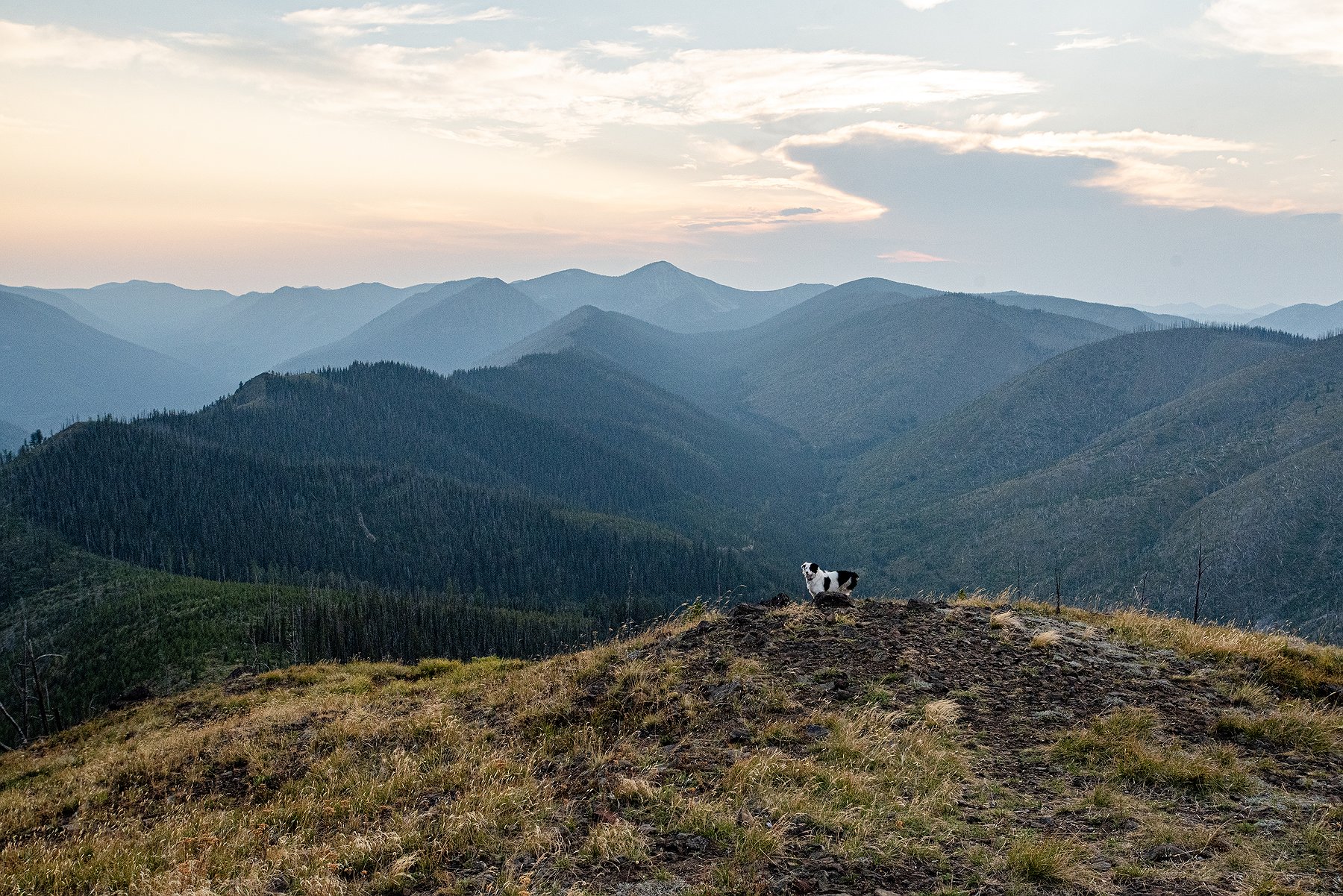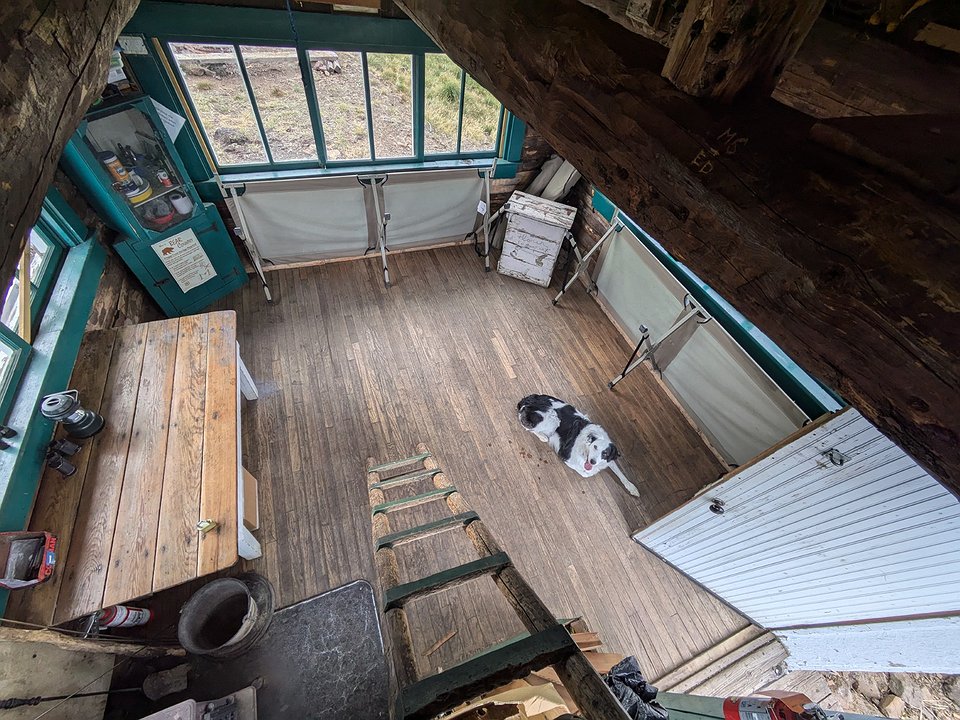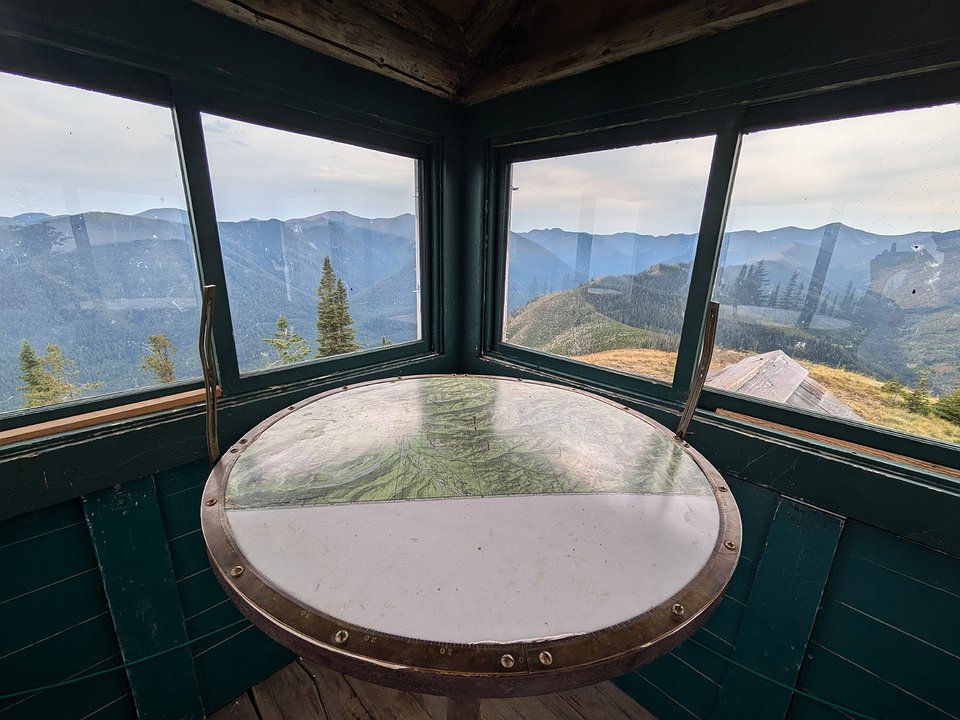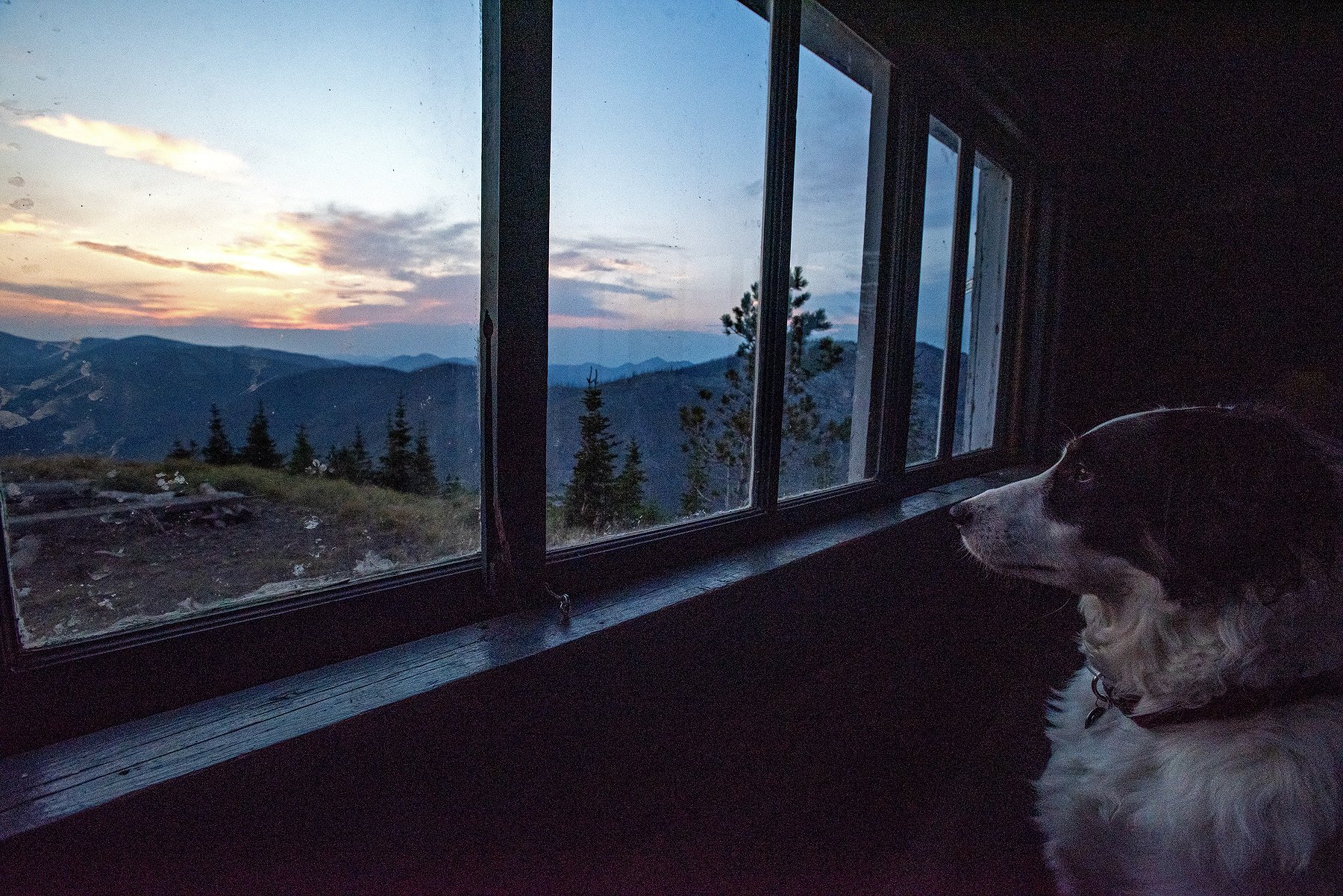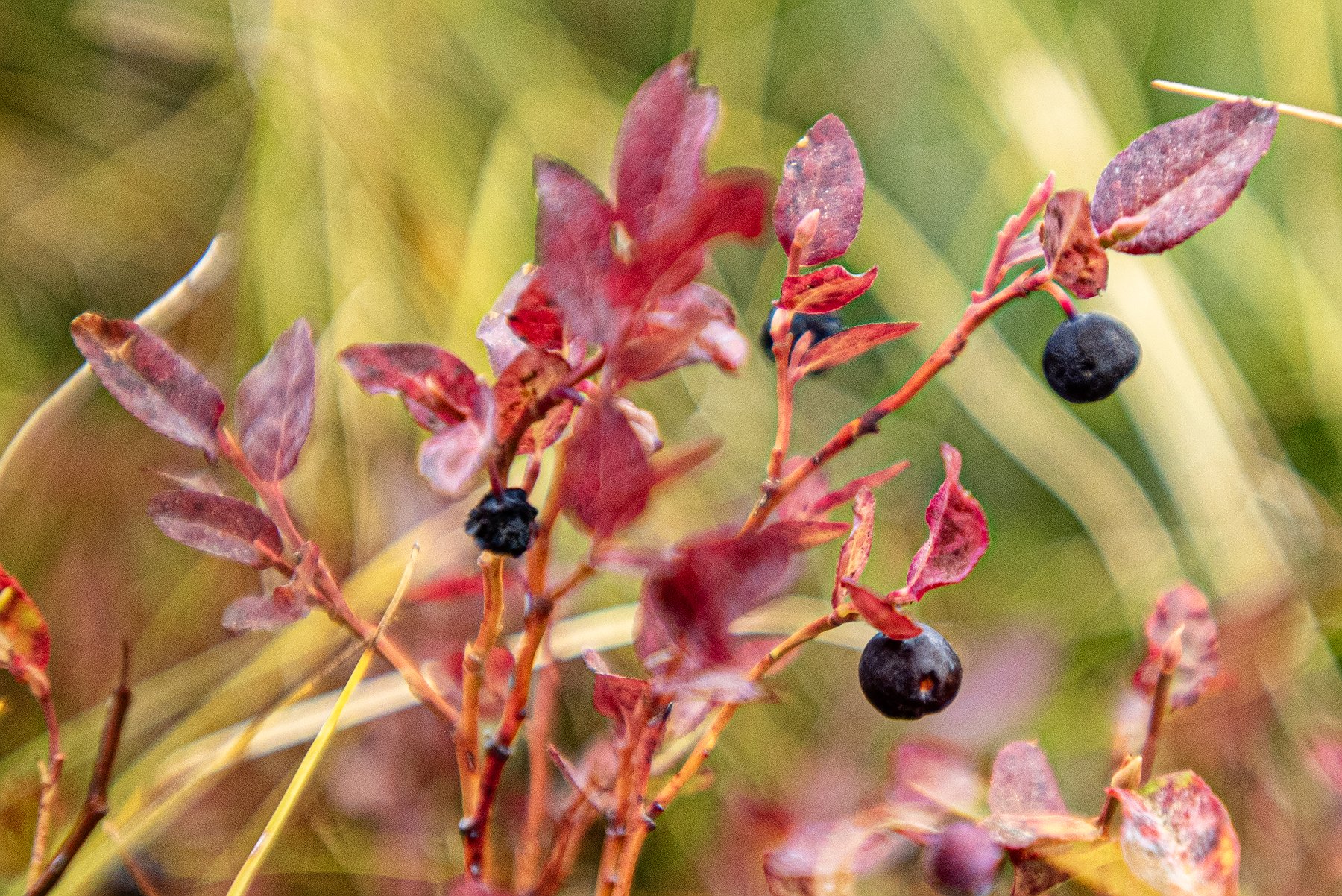A visit to Hornet Lookout
On Saturday, March 2 circa 7:46 a.m., I was awake but still in my pajamas, bothering four of my closest friends via Snapchat. I had recruited them to help me in a near impossible mission: renting Hornet Lookout for Labor Day.
The reservations for most Forest Service rentals open at 8 a.m., six months before check-in. I had been refreshing recreation.gov all morning. I watched the little digital clock at the top of my phone screen, and as it turned to 8 sharp, hit “reserve” with the reflexes of a feline on Adderall... only to be informed I had missed my opportunity.
A minute later, my roommate, Jessi, texted me the reservation details. She’s quicker than my cat-like reflexes, I guess.
The fire lookout idea came from a Bob Marshall Wilderness Foundation speaker series we had been attending earlier this year. Mark Hufstetler, a local historian and fire lookout, told epic stories of young men left alone in the woods all summer, going crazy, becoming enlightened, everything in between.
I live in Columbia Falls and love the North Fork, so the idea of Hornet Lookout stuck with me. The lookout was built in 1922, it is the oldest surviving lookout in Northwest Montana. There were roughly 150 lookouts in Flathead National Forest at their peak. Now there are seven.
Hufstetler told us that Hornet Lookout and early cabin-style lookouts like it were made of wood found in the surrounding forest. As lookouts became more prevalent, they were made in sort of a “box house” method, with basic materials packaged and carried up by mules.
By 1954, technology had advanced enough that they would actually dump the timber for a new lookout from a helicopter above the location in the middle of winter. The snow would soften the landing, and when it melted in six months, crews could assemble the lookout. A mill in Columbia Falls used to provide the wood materials for this.
Before college kids were the main people manning the lookouts, local people in need of a little extra cash in the summer stepped in. Older folks, small families, couples. There were phone lines put up to call in fires. Radios weren’t available until after World War II. The lookouts were alone. In 1947, Mel Ruder wrote about the “Lonesome boys of Flathead” in Hungry Horse News.
“You start looking through the biographies of these people and you find that almost without exception, these kids were having the time of their lives up there, even though nothing was happening,” Hufstetler said in his speech.
So last weekend, I packed my bag and headed up. It’s a long drive – maybe two hours -- from Columbia Falls, but it’s the kind of driving I like to do. You bounce up the North Fork Road until Whale Creek Road, then turn again at Hornet Road and wind up a narrow dirt road that would have made my mother yell had she seen me up there in my little red Rav4.
The hike is only supposed to be a mile from the trailhead. I did not agree with that on the way up.
My dog, Margot, is three-legged and naughty. I tie her to my waist with a lead when we’re walking through the woods so she doesn’t chase anything or anybody. I made her carry her own water to start, I figured it wasn’t too much and would be good exercise for her, but she started dragging only about a quarter of the way up the trail. So I took her pack, and then magically she was yanking her lead, pulling me up the mountain.
The area was scorched in the 2003 Wedge Fire, and you can still tell. Things are growing back though, including the most huckleberries I’ve seen out and about this year.
I was reminded of a story Hufstetler shared from The Western News, Aug. 7, 1930. Fire Lookout William Reimer in the Kootenai set out to track down a fire spotted that evening, and on his way through the brush, was attacked by a grizzly. The bear reportedly grabbed him by his foot and reared up on its back legs, shaking him around. Reimer reached his revolver and shot the bear in the stomach six times before it let him loose. He was able to pop his dislocated hip back into place between a rock and tree and walk the two miles back to the lookout to phone for help.
I am not that tough. But I had bear spray and I’m loud.
The lookout was better outfitted than I thought it would be, and I even had a little cell service. I cooked bacon on the provided propane stove, watched the sun set from the upper deck of the lookout, which you have to be something of a contortionist to climb into. Some ptarmigans and a doe with a radio collar visited us. I wrote and read and thought. Picked huckleberries. I was hoping for Northern Lights, but no such luck.
You can feel all the people who came before you in a place like that. I sat on a fold out wooden chair that had to be older than my grandfather and admired all the artifacts people had left behind — a ripped deer stuffed toy, a philosophy book, mismatched pans blackened by years over the flame, a can of Coke someone left as a treat for the next visitor. Then there were the old old things, a crate marked “flour and sugar, etc.,” that in my mind was carried up by mules back in the day, a handmade table and ladder. The room smelled like Pine-Sol. I slept on a cot that had held countless strangers.
I don’t think I’m enlightened after a night on the mountain, but I don’t know how you could not leave that place with a little more sense of wonder.
Though Hornet might be a bit far for you Bigforkers, I hear Mission Lookout near Swan Lake can be reserved by the public... remember, six months in advance!








